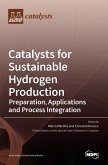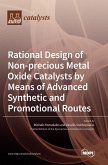Currently, cobalt and related catalysts are very attractive as they provide many advantages, such as low cost and high activity, in a variety of applications. Cobalt catalysts are among the most active catalysts for Fischer-Tropsch synthesis and they promote the catalytic activity of the hydrodesulfurization catalysts. They also found other significant applications in environmental protection such as oxidation of volatile organic compounds, VOC, persulfate activator, ammonia synthesis, electrocatalysis and many more. Cobalt catalysts are active, stable and exhibit significant oxidation-reduction activity, as the Co can be found either as Co(II) or Co(III). Additionally, many molecules can interact with the cobalt supported phase by co-ordination due to partially filled d-orbital. Co-catalysts can be supported in almost all the inorganic supports such as alumina, titania, zeolites, etc. The cobalt oxide phase can be stabilized on the surface of the support due to variable interactions between the support and cobalt phase. These interactions are crucial for catalytic activity and can be regulated by proper selection of the preparation parameters such as the type of support, the Co loading, impregnation method and thermal conditions.
Hinweis: Dieser Artikel kann nur an eine deutsche Lieferadresse ausgeliefert werden.
Hinweis: Dieser Artikel kann nur an eine deutsche Lieferadresse ausgeliefert werden.








